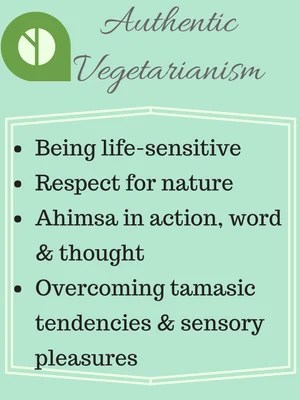The meatless Impossible Burger, invented by California-based company Impossible Foods, has been in the news recently, for some wrong reasons. Turns out that environmentalists, who would have been thought to be proponents, are not thrilled with the plant-based fake meat that famously ‘bleeds’ like real beef.
The development of the fake meat is in response to the undesirable effects of meat consumption on the environment. However, despite the company’s assurances that the patties, which contain a genetically engineered ‘secret’ ingredient, are safe to consume, activist groups are not convinced.
The purpose of this article however is not to delve into the health aspects, but rather, the deeper human and spiritual aspects of choosing to include meat substitutes in our diet.
Realisation or faking it?
The horrors of industrial animal farming (referred to by the Guardian as one of the worst crimes in history) namely, the inhumane treatment of animals and degradation of the environment, have been encouraging more and more people to turn vegetarian in recent years.
See also: Are Veggies Living Wiser?
Mostly when people voluntarily give up meat, they are motivated by a heightened sensitivity to other life. They act from a place of renunciation, personal sacrifice and respect for life and nature.
However with meat substitutes, we still want to feel like we’re eating meat and want to squeeze our way through the entry gate to the moral high ground via a technicality. We stick to the letter and completely miss the spirit. It’s a classic ‘I’ll have my cake and eat it too’ attitude.
In fact here’s how the Impossible Foods website introduces its meatless burger:
“A delicious burger made entirely from plants for people who love meat. No more compromises.”
Why would someone who wants to switch to eating plants love meat? The company is basically saying, ‘Want to not change your frowned-upon habits and still feel good about it?’ It’s not a call to our humanity. It’s a call to our senses.
This attitude flies in the face of one of the most basic spiritual precepts (so to speak) – being mindful of our ‘intention’. It’s no doubt good if we stop slaughtering animals physically, but if we continue to rejoice in slaughtering them mentally, our inner growth will be very stunted. Ahimsa or non-violence is not just about killing with a knife, but also killing with our words and thoughts.
In developing fake-meat products that are as close to the real thing as possible, we are implicitly saying ‘We don’t need to exploit nature, we can make what nature can make just as well’. This brand of vegetarianism, instead of pointing towards humility, points towards hubris.
Instead of approaching a vegetarian lifestyle from a grateful and reverential standpoint, where we are humbled by the gifts of Mother Nature, we end up strengthening our arrogance and inauthentic and superficial lifestyle. With over-engineered and genetically modified foods, we lose the chance to develop finer sensibilities and may move even further away from the natural world than if we just chose to eat meat.

The meatless takeaway
While meat substitutes can have the desirable impact of lowering rates of animal slaughter, they should not replace an authentic vegetarian lifestyle which is a reflection of a satvik (purified) mind. We must remember that they are substitutes for meat, not for veggies.
Going meatless authentically, means honouring and respecting nature and feeling for all other life that shares the planet with us. It is about becoming conscious about our consumption and not being led by sensory pleasures which cause us to behave in compulsive and destructive ways. It is about realising that pleasuring the senses is not the way to real contentment and then turning within to search for more lasting fulfilment.
And all this is impossible to achieve with the Impossible Burger.


Interesting Shruti. I hadn’t thought about that angle on the spiritual side. Personally, I have always been in favour of the ‘meatless’ burger, since there are many meat substitutes out there already, an in the less granular form (the good old ‘veggie’ burger). But, I think I read somewhere that meatless burgers, still require the embryo or cells from an animal in the first place, so its not really pure in that sense.
For me, as someone who enjoys eating meat (but now refrains from it), this development is interesting. I think that upon reflection that if we can create a ‘meat substitute’ that is unprocessed, wholesome, and truly plant derived, then I would take a different view. For me though, I would question to what lengths does it take to alter nature’s produce in order to achieve such results – that for me is what I’m uncertain about.
Thanks for sharing your views on this Scott. I agree about the ‘processed food’ angle as being the most important one. But I think we can go further than that. I think there’s a vast difference in turning vegetarian to be politically or morally correct and turning vegetarian because you feel a genuine shift internally in terms of how you look at other life…if it’s the latter then even the thought of eating meat (even though it may technically not be) feels unpleasant unless there’s no choice..
Great point! In today’s society everyone is looking to “lose weight without working out” and “eat burgers without eating meat.” We always want to take the easy way out and indulge. When adopting certain lifestyles there is no need for such cheating.
Thanks Julia, glad you agree with the premise of the article! Yes, that’s really what I was getting at. Squeezing our way through technicalities really misses the spirit and essence of the matter. Wanting it all the way we want it doesn’t let us go far in terms of personal growth.